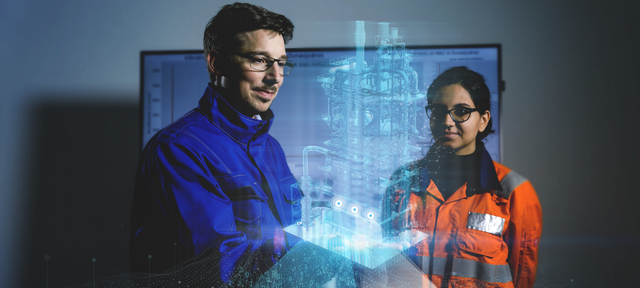But Heinzerling and his team do a lot more than just predict the future. "We offer general consulting services based on real-time data from entire plants or their individual components, mainly evaluating parameters such as pressure, temperature and vibrations," elaborates the Linde expert. "The process control system also provides valuable data". In some cases, however, additional sensors have to be integrated to ensure product quality, for example. These continuous streams of data are then processed by intelligent algorithms and evaluated by Linde experts. If a problem arises, they can contact the customer and work with them to develop a solution. In some instances, the team calls on their colleagues from
LINDE PLANTSERV®, who support with spare parts deliveries and their in-depth repair know-how. What’s more, the data-enabled services provided by experts at Linde Advanced Operations Services can be quickly and easily implemented without any big upfront capital expenditure. These services also pay for themselves in a short space of time. "Our aim is to boost the overall availability of plants by bringing new levels of transparency to operations. This increases overall profitability and efficiency – which is naturally the overarching goal that both we and our customers want to achieve," explains Heckmann.
